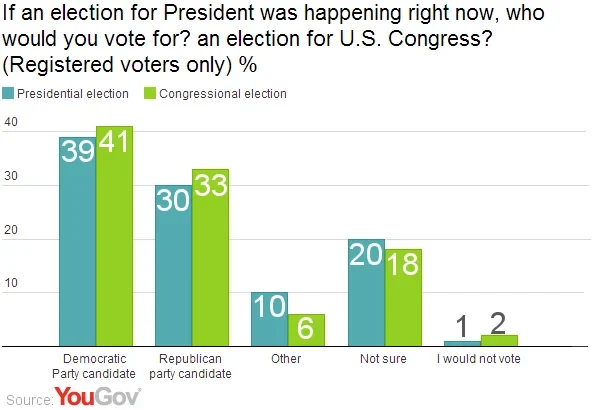President Obama's approval rating has continued to drop, while people who have used state insurance exchange websites report far better experiences than people who have used the federal site.
More than six in ten Americans in the latest Economist/YouGov Poll who say they have tried to visit the federal government’s health insurance exchange website healthcare.gov say their experience was negative – a sharp contrast with the ratings given by those who say they have gone to a state health care exchange. State website users are more positive than negative about their experience.
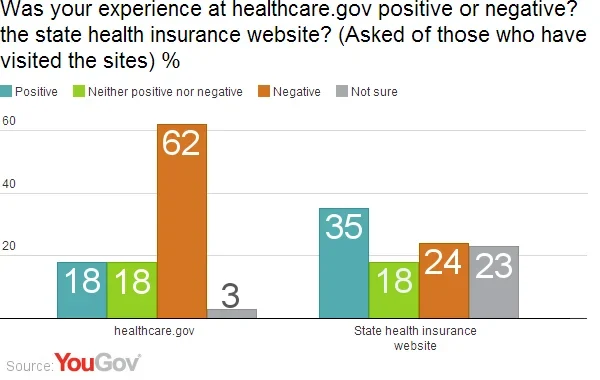
Previous polls have suggested that not all the people who went to the sites early on were actually looking for policies; some were just curious. But even many Democrats, who have been generally supportive of the health care reform, find it hard to give much credit to the federal website. More than a third of Democrats who have visited the federal website rate their experience negatively.
There were indications that there were website problems long before the site launched in October, including a March McKinsey Report warning that the site was at risk for several reasons. That report’s findings were communicated to members of the White House staff, but it is unclear whether the President knew of the problems. But in the poll, half the public thinks he did.
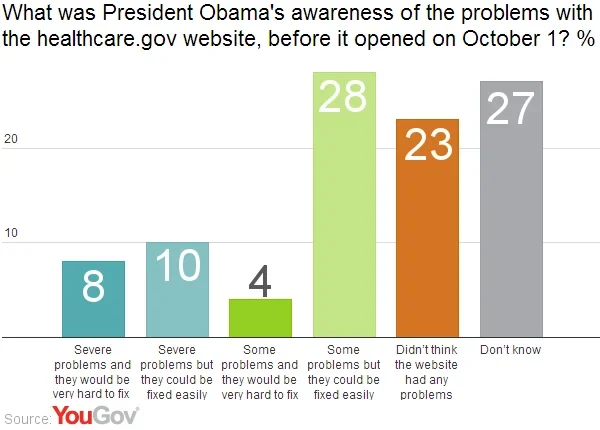
One in four Americans believes President Obama knew there were severe problems or thought some problems would be very hard to fix. Another quarter think he was aware of problems, but thought they could be solved easily. Another quarter think he knew nothing about the problems. About half of both Democrats and Republicans thought President Obama was aware of problems, with Democrats most likely to think he thought problems were few and fixable.
Those who have visited healthcare.gov are even more likely than the public overall to think the President knew before the website’s launch that it had problems.
The evaluation of Obamacare is increasingly negative: this week 55% call the Affordable Care Act a failure and just 12% say it is even a partial success. A third call it a “complete” failure.
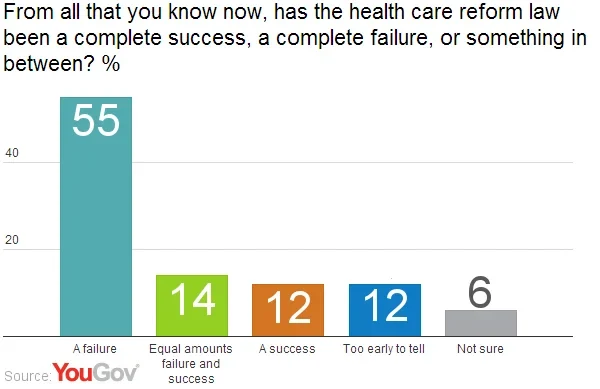
This week, even Democrats are divided, with 25% calling the ACA a failure.
But most Americans still say the law has not touched them, though the 27% who say it has are overwhelmingly negative in describing its effect.
However, the overall assessment of the President has changed little in recent weeks. This week, 41% approve, 50% do not.
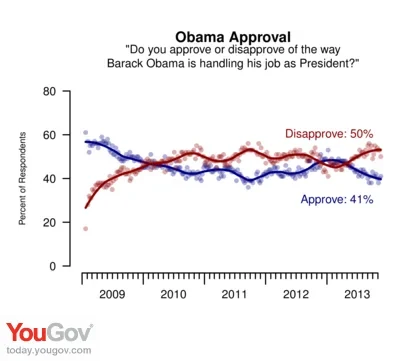
Since mid-September, the President’s approval rating has been as high as 43% and as low as 38%, keeping within a narrow five-point range. The low point of 38% came just after new revelations of NSA surveillance, shortly after the end of the partial government shutdown, and as revelations about the health care website problems became major news.
This week’s numbers are little better than two weeks ago, but they are not worse. And Americans like the President’s change of mind when it comes to those affected by health insurance cancellations of policies that did not meet the standards set by the Affordable Care Act. By two to one, they approve of the President’s change of mind on this, allowing those plans to continue (though it is not yet clear how many of those policies will remain in effect).
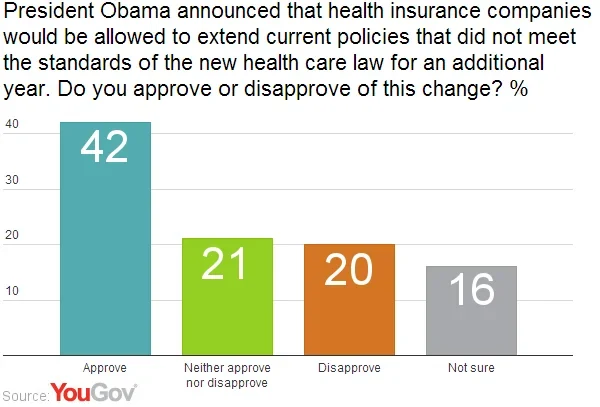
Republicans approve of this decision, too, 39% to 24%.
But Americans would like the President to go further. 43% think anyone, not just those who had those cancelled policies, should be able to purchase insurance plans that don’t meet the standards set by the Affordable Care Act.
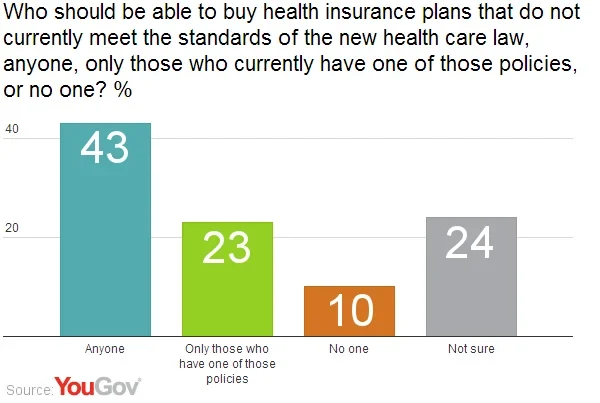
The Presidential change of mind has had only incremental effects on some other characteristics. Although fewer now than two weeks ago call him “arrogant” (37% today versus 43% two weeks ago), he is no more likely to be viewed as “effective.” Just 20% say he is. And half still says President Obama is more likely to say what he thinks people want to hear than what he really believes.
But so far at least, there has been no dramatic impact on how voters are answering questions about what they might or might not do in future elections. The Democrats maintain a 41% to 33% lead among those registered to vote in their current choice for Congress in 2014. But one in five aren’t sure. And a generic Democratic presidential candidate still leads when voters are asked about what they think they might do in 2016; however, on this question, 10% want someone other than a Republican or a Democrat, and another 20% aren’t sure.
